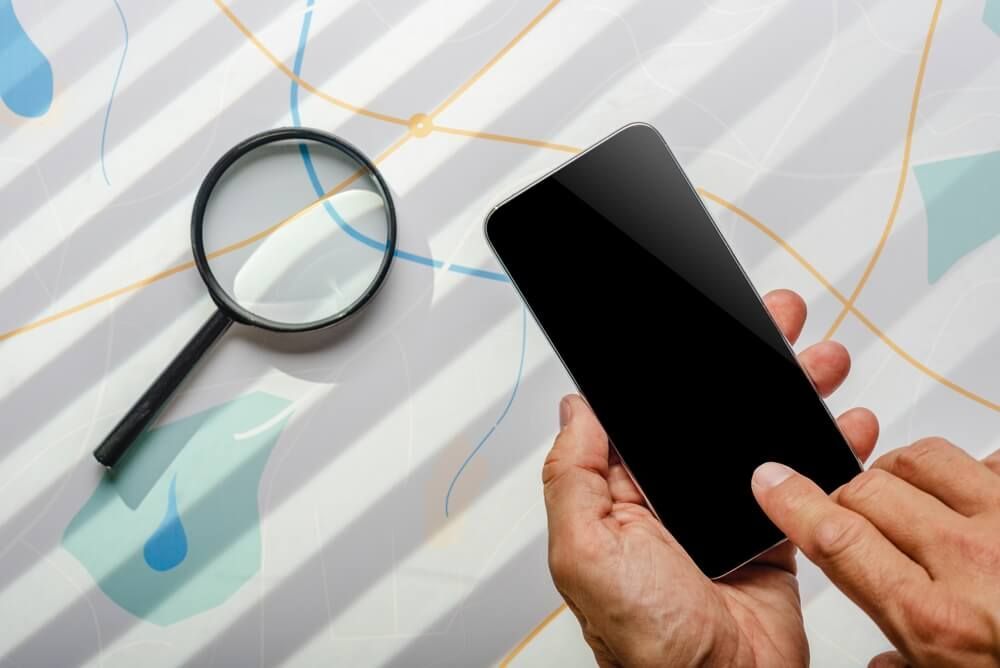How Can You Tell If You're Being Catfished?
Catfishing is when someone creates a fake identity using stolen pictures and false information. An important part of what defines catfishing is that it is entirely online.
The catfisher will not want you to see their face because they do not look or act like they would have you believe.
There are several different reasons behind why someone would do this and it is not always just about money.
The first thing that should arouse your suspicion is that you have developed a relatively close romantic relationship with someone, you talk a lot and get on well, but you have never met them or seen their face unless in pictures.
Here is a list of the most common things to look out for if you think that you are being catfished:
They Are Perfect
You have seen their profile picture and they are very good looking, in shape and photogenic. The backstory you get will be of someone who is a high achiever in several fields. They could be good at sport, musical or have a high powered job.
They will be using someone else's photos, often models from stock photos but sometimes minor celebrities.
In addition to that you will find in conversation that they have a lot in common with you and share your views on important issues. This is designed to lure you in to the idea of a fantasy life with someone who is such a good fit for you that you should not let them get away.
When a real relationship is in its early stages there will always be a time where both people only present their 'good side' to the other so you should expect a certain amount of this anyway.
However a real person will usually express an opinion on something if you ask them without expressing an opinion yourself first.
This is important because a catfisher will not want to commit to an opinion without knowing yours first. Look out for evasive language or changing the subject when you ask.
There Is A "Sob Story" Or Sympathetic Angle
There is usually a component to their story that is designed to generate sympathy which will be used to manipulate your emotions at key times.
When someone needs to manipulate over a period of time they need to make you admire them (the perfect career or sporting achievement) and they need to have a way of making you feel sorry for them if you are not complying with what they want.
Look out for a change of tack if they ask for something and you do not agree. Do they tell you a story that make you feel sorry for them?
The Relationship Moves Very Fast But Only In Certain Ways
They will want to progress parts of the relationship very quickly to generate the level of trust and intimacy that is required to manipulate you.
Are you being told they could spend the rest of their life with you? That you have a deep emotional connection? But they won't meet for some reason?
There are identifiable stages to most relationships
- Attraction - Honeymoon phase which typically lasts a few months
- Reality
- Commitment
- Intimacy - After a year or so
- Engagement
If you are being catfished then there will be signs of commitment that you would expect in the intimacy stage but you will have it in the attraction stage. They want to gain your trust quickly and make you believe that the relationship you have is too valuable to waste.
They will not meet you
Catfishers are usually very well practiced so virtually all will have a story on why they cannot meet with you already planned out.
This could be that they are abroad or very busy with their "high powered career".
Either way you should look for opportunities to meet with each other even if it's just a suggestion. That way you can gauge their reaction.
They Will Not Video Call With You
These days speaking to people face to face is so easy and free that you would expect to be able to do it without issue.
A catfisher cannot allow you to see their face in real-time so they will make any excuse to avoid it.
There will be IT issues, broken phone or web cam, internet issues or they will have a reason to be not available.
Watch out for the sympathy angle too. Are they saying that they don't look good enough or that they've put on weight and want to lose it before they see you?
Their Social Media Profile Is New And Not Well Filled Out
A catfisher will need to re-invent themselves several times to con new people so there will not be a lot of social media history.
There will always be more than one picture but rarely more than five. A real person will generally have more than this. Even if they are shy they will often share pictures of their children, pets or even the sport team that they support.
A few years of pictures and friends interacting with them is a good sign that they are a real person.
They Need Money
A massive red flag is if they need money for something. Often this will be tied to their backstory e.g. they are abroad and need money to come and see you. There might be some reason why they claim to not have money at the moment that will involve a situation which leaves them temporarily poor such as legal issues with an unscrupulous former business partner.
Straight away they have a story which explains why they cannot meet you, a story that generates sympathy and a need for money in the short term.
You should never send money to someone you do not know in real life.

What To Do Now That You Suspect Catfishing
Now that you have reasonable suspicions what can you do to prove it either way?
Search For Their image Online
If they are using someone else's photo then they will have gained this image online. You can find this by using Google's reverse image search. Click here for instructions on how to use this.
If your online friend is using a fake picture then there is a decent chance that you will find it here.
That is not to say that this is a 100% accurate process. A catfisher could obtain photographs that are not online which would avoid being caught out in this way.
If you met them through an online dating site then this will show if they have used this image elsewhere.
Search Their Online Profile
You can search for their phone number to see if it comes up elsewhere or with any warnings.
Most people have a LinkedIn profile which should show their current employment which could corroborate their story.
Gently Investigate Their Story
If they say that they are from a specific area then look up that area and ask if they know or have been to certain places nearby.
If they work in an industry then look up some facts which you can ask them about. Frame it in a way that makes you look like you are taking an interest rather than interrogating them.
Background Check
The most concrete way of investigating someone is by hiring a private investigator to perform a background check.
This will give you their address, real name, aliases, employment and criminal record.
At least this way you can be sure about their true identity either way.
How Can A Background Check Stop Catfishing?
A lady contacted us feeling quite distressed. She had indeed fallen in love with a man she had met online. She said that she felt embarrassed as an intelligent and successful woman she wasn't sure how she had gotten herself in this mess.
The male she had fallen in love with she had met on one of the better known dating sites some two years ago. Since then, they would text back and forth daily.
Bizarrely throughout the two years, they never once met, although he would send her nice gifts to both her office and home address.
Even more bizarre was the fact that he had not once made any attempt to video call our client and would only send voice notes. He also claimed to be abroad a lot of time working, with investments in the Middle East and so on.
Hiding behind his chiselled good looks from images on the dating app our client fell for it. Intimate messages were often exchanged, and feelings became intense.
Time after time, however, they arranged to meet, and he would cancel.
Our Client knew something wasn't right and then reached out to us. She started to quiz him, but he had an answer every time.
Often outlandish excuses and stories, but he was convincing. He'd clearly been doing this for many years.
With only a phone number and a handful of pictures to look at we were firstly able to confirm the name of the individual behind the phone number.
This indeed was a much older male, living with his elderly parents and seemingly unemployed.
Never married, with no children and seemingly having the profile that was very suggestive of him being a bit of a loner. We were then able to locate social media accounts, addresses, and family information for our Client- an extensive background was carried out! Of course all done legally and ethically.
We then ran the images she had from his dating site profile through our facial recognition systems and were able to confirm that the images were actually that of a lower league football player and he was actually 32 years older than the footballer that he had been using as his alias.
Our Client was understandably shocked and devastated, to say the least. She had shared intimate pictures and videos with this man, she had shared her lifestyle with him and made plans to be together with him moving forward.
Although she had her suspicions, she wasn't quite prepared for the level of lies he had produced throughout the two year period.

Why Do People Catfish?
The most common reason to catfish is to obtain money from people fraudulently. A lot of cases will involve a professional fraudster who creates multiple online profiles on dating and social sites and carries out multiple catfishes.
However there can be other reasons as well which are more obtuse. There have been cases where people have fake profiles due to their own low self esteem. They are not trying to get money, they just wanted to live a life that they covet which they could not lead in the real world.
Other cases have involved people exploring their sexual identity. Their online fake profile might be homosexual or transsexual and the online world offers a place where they can live an alternate life without fully committing to it.
On the face of it this is not necessarily a bad thing but you have to remember that the other person in this couple is a victim who has been misled and manipulated.
Targeted revenge or harassment is another more sinister motive. In these cases the catfisher will know their target and their purpose is to deliberately embarrass them or make them feel vulnerable.
One strange case is that of Dave on Wheels. This is where a man named David Rhodes invented an online character who was a paraplegic, deaf boy with cerebral palsy.
Dave On Wheels blogged and tweeted online regularly about his illnesses and how he was dealing with it in an inspiring way. This had gained him many followers and there were several offers of charitable aid.
Some websites picked up on the inspiring story of Dave On Wheels and covered the story. Overnight Dave On Wheels became an online celebrity.
The reality was that Dave On Wheels was fake and when he became famous his (also fake) sister messaged that he had fallen into a coma and then later on that he had died.
Kim Kardashian even tweeted her condolences.
When the truth was discovered David Rhodes said that Dave On Wheels was in fact simply 'part of his psyche' and had been invented to help with his own depression. He said that fame had never been his intention.
Where Does the Term Catfish Come From?
The term “Catfishing” comes directly from a 2010 documentary film where a man named Nev Schuler presented his own experience of being conned online. This was back when this practice was not well known.
The reason that the 'catfish' is used is down to a myth about how fish are shipped as recounted by the 40 year housewife in the documentary who had been pretending to be a 19 year old girl online.
She said that cod fish were shipped with other fish in the same tanks to ensure the quality of the cod fish due to catfish nipping at them. This would then stop the cod from becoming lethargic and atrophying.
She then said that people like her were the catfish, keeping people 'on their toes' and always guessing.
If you would like to know more about how Background Checks can keep you safe then please visit our Background Check Page










